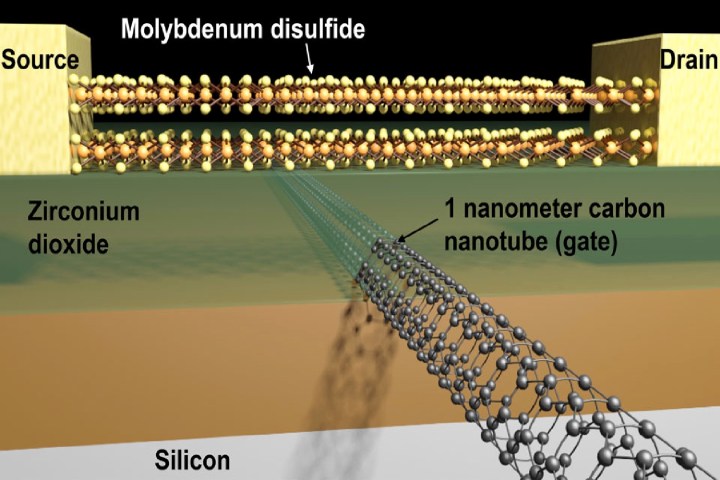
To that end, a research team under the leadership of Ali Javey at the Department of Energy’s Lawrence Berkeley National Laboratory has just created a transistor with a functional 1-nanometer gate, which the team claims is the smallest working transistor yet made. Putting its diminutive size in context, one strand of human hair is around 50,000 nanometers in thickness.
Making transistors smaller is important because the tinier a transistor can be made, the more that can be fitted onto a single computer chip. Pushing the limits of physics to make ever-smaller transistors is one way that Moore’s Law — the theory about the annual doubling of the number of components per integrated circuit — can be kept going.
“A 5-nanometer gate length was previously considered the theoretical limit for transistor operation, due to direct source to drain tunneling of electrons at smaller gate lengths,” Javey told Digital Trends. “Our work shows that through proper material selection and device architecture, gate lengths as small as 1 nm are feasible with near ideal transistor switching characteristics.”
The construction of the 1-nanometer gate relied on a rethink about the materials it was created from, due to its size. Since regular lithography techniques aren’t suitable for this scale, the team instead employed hollow cylindrical carbon nanotubes.
For now, both Javey and researcher Sujay Desai note that this remains a proof of concept. “We have not yet packed these transistors onto a chip, and we haven’t done this billions of times over,” Desai said. “We also have not developed self-aligned fabrication schemes for reducing parasitic resistances in the device. But this work is important to show that we are no longer limited to a 5-nanometer gate for our transistors. Moore’s Law can continue a while longer by proper engineering of the semiconductor material and device architecture.”
For anyone who cares about the future of high-speed computing, that can only be a good thing!


